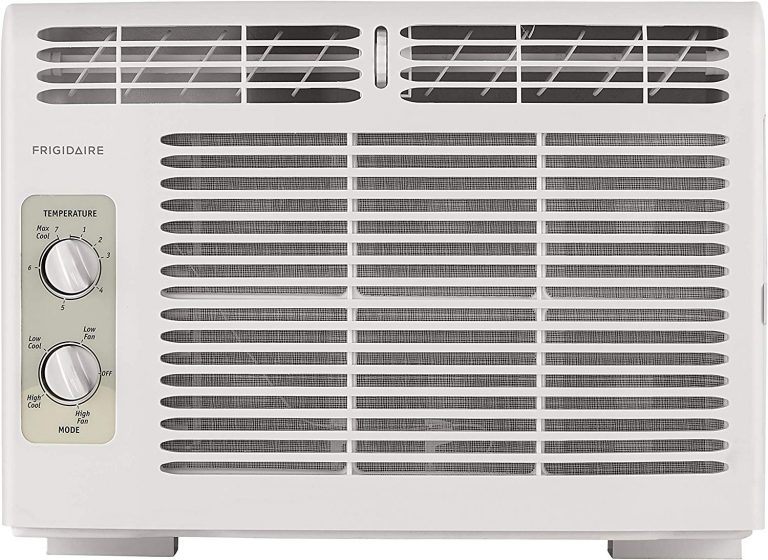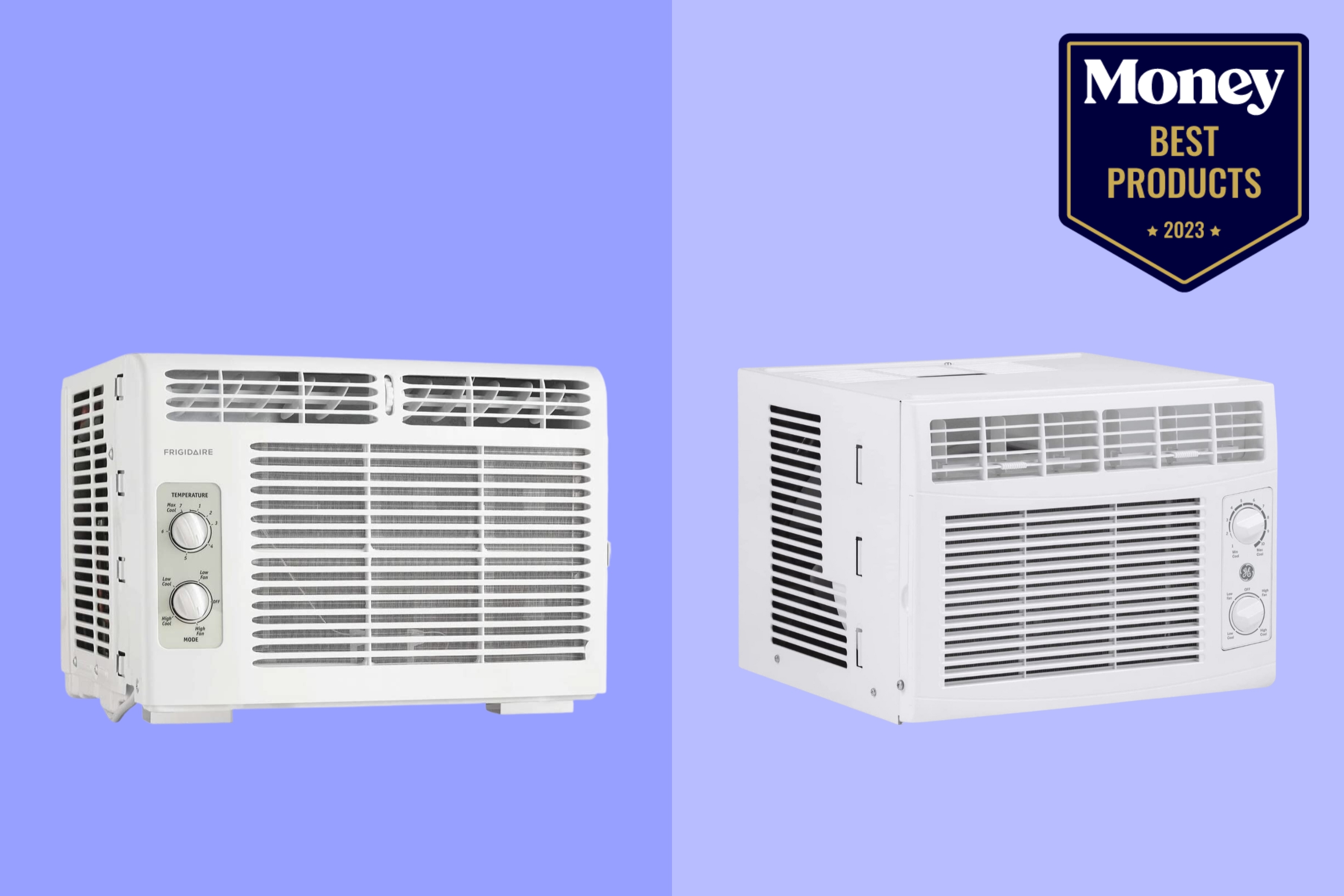What Is The Smallest Btu Air Conditioner

The Tiny Titan: Exploring the World of the Smallest BTU Air Conditioners
In the world of HVAC (Heating, Ventilation, and Air Conditioning), bigger isn't always better. While large, powerful systems are essential for expansive spaces, there's a growing demand for smaller, more efficient cooling solutions. This article dives into the world of the smallest BTU (British Thermal Unit) air conditioners, exploring their applications, performance, and the skills required to install and maintain them.
Understanding BTU and Cooling Capacity
Before we delve into the specifics, let's clarify what BTU means. A BTU is a unit of energy – specifically, the amount of energy required to raise the temperature of one pound of water by one degree Fahrenheit. In the context of air conditioners, BTU represents the cooling capacity – the amount of heat an AC unit can remove from a room in one hour.
Larger spaces require higher BTU ratings, while smaller rooms can be adequately cooled with significantly lower BTU units. Over-sizing an AC unit can lead to short cycling (frequent on/off cycles), which wastes energy, reduces dehumidification, and shortens the lifespan of the equipment. Conversely, an under-sized unit will struggle to maintain the desired temperature and will run constantly, consuming more energy.
What is the Smallest BTU Air Conditioner?
The smallest BTU air conditioners typically start around 5,000 BTU. These units are designed for very small spaces, usually ranging from 100 to 150 square feet. Common applications include:
- Small Bedrooms: Providing targeted cooling for a single occupant.
- Home Offices: Maintaining a comfortable working environment in a compact space.
- Server Rooms: Removing heat generated by computer equipment in small server closets.
- Single-Person Offices: Individualized cooling for employee comfort.
- RV and Camper Vans: Portable cooling solutions for mobile living.
While 5,000 BTU is a common starting point, some specialized units may offer even lower BTU ratings for niche applications. For instance, some portable AC units designed for spot cooling or personal use might have ratings below 5,000 BTU, but these are less common and often less efficient.
Types of Small BTU Air Conditioners
Small BTU air conditioners come in various forms, each with its own advantages and disadvantages:
- Window Units: These are the most common type of small BTU AC. They are relatively inexpensive, easy to install, and readily available. They fit into standard window openings and exhaust hot air outside.
- Portable Air Conditioners: These units are self-contained and can be moved from room to room. They require venting through a window using a hose. Portable ACs are often slightly less efficient than window units.
- Mini-Split Systems (Single Zone): While typically associated with larger cooling capacities, mini-split systems can be sized down for small spaces. A single-zone mini-split consists of an outdoor condenser and an indoor air handler connected by refrigerant lines. They offer ductless cooling and often have higher energy efficiency ratings than window units.
The Growing Demand for Energy Efficiency
Consumers are increasingly concerned about energy consumption and its impact on both their wallets and the environment. Small BTU air conditioners address this concern by providing targeted cooling, minimizing energy waste. Look for models with high EER (Energy Efficiency Ratio) or SEER (Seasonal Energy Efficiency Ratio) ratings. These ratings indicate how efficiently the unit converts electricity into cooling power. Higher ratings translate to lower energy bills.
Governments and organizations are also promoting energy efficiency through rebates and incentives. Technicians who are knowledgeable about energy-efficient HVAC systems are in high demand.
Career Paths in HVAC: A Booming Industry
The HVAC industry is experiencing significant growth, driven by factors such as climate change, building automation, and the increasing demand for energy-efficient solutions. The Bureau of Labor Statistics projects a growth rate of approximately 5% for HVAC mechanics and installers over the next decade. This translates to thousands of new job openings each year.
Here are some potential career paths for individuals interested in working with small BTU air conditioners and related technologies:
- HVAC Technician: Install, maintain, and repair a wide range of HVAC equipment, including small BTU air conditioners. This is the most common entry-level position.
- HVAC Installer: Specialize in installing new HVAC systems. This requires a strong understanding of building codes and best practices.
- HVAC Service Technician: Focus on troubleshooting and repairing existing HVAC systems. Excellent diagnostic skills are essential.
- HVAC Sales Engineer: Work with clients to design and select appropriate HVAC systems for their needs. This requires both technical knowledge and sales skills.
- HVAC Project Manager: Oversee the installation and maintenance of HVAC systems for large projects. Strong organizational and leadership skills are needed.
Essential Certifications for HVAC Professionals
While a formal education isn't always required to enter the HVAC field, certifications can significantly enhance your career prospects and earning potential. Here are some of the most valuable certifications:
- EPA Section 608 Certification: Required by the Environmental Protection Agency (EPA) for technicians who handle refrigerants. This certification ensures that technicians understand proper refrigerant handling practices and can prevent refrigerant leaks, which are harmful to the environment. Different levels of certification (Type I, Type II, Type III, Universal) cover different types of equipment.
- NATE (North American Technician Excellence) Certification: A widely recognized certification that demonstrates a technician's competence in specific areas of HVAC, such as air conditioning, heating, and ventilation. NATE offers various certifications at different levels, allowing technicians to specialize in their area of expertise.
- HVAC Excellence Certification: Another respected certification that validates a technician's skills and knowledge.
- State and Local Licenses: Many states and municipalities require HVAC technicians to be licensed. Licensing requirements vary, but typically include passing an exam and demonstrating experience in the field.
Salaries in the HVAC Industry
Salaries for HVAC professionals vary depending on experience, location, and certifications. According to the Bureau of Labor Statistics, the median annual wage for HVAC mechanics and installers was approximately $51,390 in May 2021. However, experienced technicians with certifications can earn significantly more. Entry-level positions may start around $35,000 per year, while experienced technicians with specialized skills can earn upwards of $70,000 or more.
Here's a general overview of salary ranges for different HVAC roles:
- Entry-Level HVAC Technician: $35,000 - $45,000 per year
- Experienced HVAC Technician: $45,000 - $65,000 per year
- HVAC Service Technician (Specialized): $55,000 - $75,000+ per year
- HVAC Sales Engineer: $60,000 - $90,000+ per year (plus commission)
- HVAC Project Manager: $70,000 - $100,000+ per year
Real-World Career Examples
Let's look at some examples of how individuals can build successful careers in the HVAC industry:
Example 1: The Ambitious Apprentice
Sarah started as an HVAC apprentice after graduating from a vocational school. She focused on learning the fundamentals of HVAC systems, including small BTU air conditioners. She obtained her EPA Section 608 certification and then pursued NATE certification in air conditioning. After several years of experience, she became a lead service technician, specializing in energy-efficient HVAC solutions.
Example 2: The Entrepreneurial Technician
David worked as an HVAC technician for several years before deciding to start his own business. He focused on providing HVAC services to residential customers, including the installation and maintenance of small BTU air conditioners for apartments and condos. He built a strong reputation for quality workmanship and customer service, and his business thrived.
The Future of Small BTU Air Conditioning
The future of small BTU air conditioning is likely to be shaped by several key trends:
- Increased Energy Efficiency: Manufacturers will continue to develop more energy-efficient small BTU air conditioners to meet consumer demand and regulatory requirements.
- Smart Technology Integration: Integration with smart home systems will allow users to control their AC units remotely and optimize energy consumption.
- Environmentally Friendly Refrigerants: The industry is transitioning away from refrigerants with high global warming potential (GWP) towards more environmentally friendly alternatives.
- Improved Air Quality: Small BTU air conditioners may incorporate advanced air filtration technologies to remove allergens, pollutants, and other contaminants from the air.
Skills Needed to Succeed
To succeed in the HVAC industry, particularly when working with small BTU air conditioners, you'll need a combination of technical skills, soft skills, and a commitment to continuous learning.
Technical Skills:
- Understanding of HVAC principles and thermodynamics
- Knowledge of electrical systems and controls
- Proficiency in using HVAC diagnostic tools
- Ability to troubleshoot and repair HVAC equipment
- Familiarity with building codes and safety regulations
Soft Skills:
- Excellent communication skills
- Strong customer service skills
- Problem-solving abilities
- Attention to detail
- Ability to work independently and as part of a team
Conclusion
The world of small BTU air conditioners presents a significant opportunity for HVAC professionals. As demand for energy-efficient cooling solutions continues to grow, technicians with the skills and knowledge to install, maintain, and repair these systems will be in high demand. By pursuing relevant certifications, staying up-to-date on industry trends, and developing strong technical and soft skills, you can build a rewarding and successful career in this dynamic field. Understanding the intricacies of these smaller units, from their BTU output to their energy efficiency, is crucial for technicians and employers alike. Investing in training and certification programs is a surefire way to elevate your skills and stay ahead in the ever-evolving HVAC landscape.










